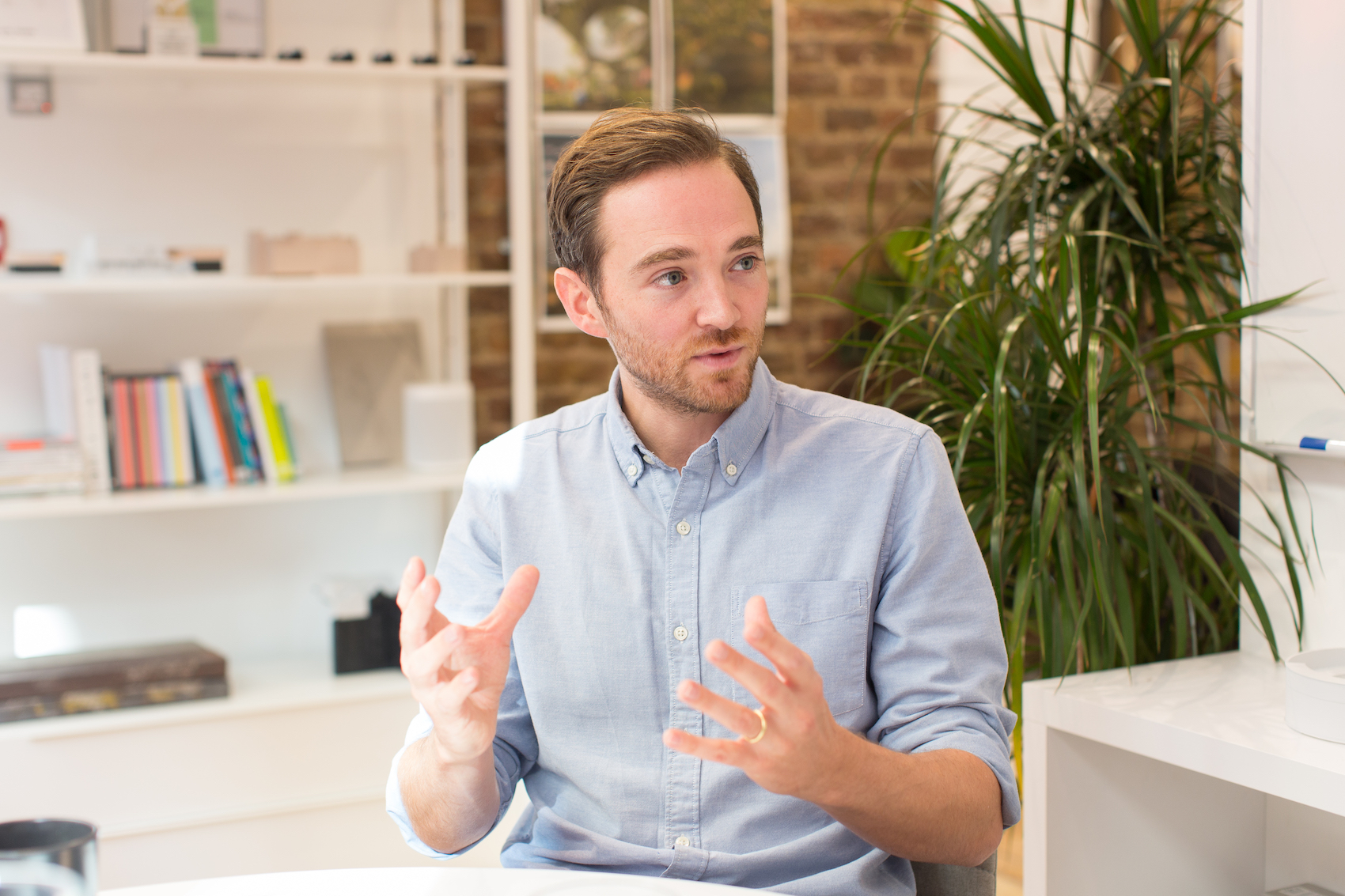AT talks to Joe Haire, co-founder of White Red Architects, about the challenges of growing a young forward-thinking practice, and the benefits of becoming a specialist rather than a generalist.
How have you been negotiating the inevitable hurdles that come with growing a young and ambitious practice?
We’re beginning to see the benefits of some decisions we took a couple of years ago, based around making the practice a viable business. After taking stock of our situation, we came to the conclusion that we were really poor at communicating our value to the people we serve. And part of the reason for this, is that we were ‘generalists’ working across a range of unrelated sectors. This necessitated a huge amount of energy in order to determine and communicate where the practice’s value lay in each sector. At the time, it felt like we might be shooting ourselves in the foot, but we decided to narrow our focus, which meant saying no to commissions, and instead concentrating exclusively on the commercial sector in central London.
Why commercial in particular?
It’s where a lot of our expertise lay from previous projects, and it’s a sector that is going through major changes post-Covid. As I mentioned, communicating value was key, and we needed a platform from which to do that. It was a case of not spreading ourselves too thinly over multiple sectors as we had done in the past. Another benefit of specialising in this way, has been the time it has given us to think about the things that really add value to the design. It has also enabled us to be more creative.
How has it been going?
Since taking this decision we have focused almost exclusively on high-end commercial projects in central London (we mix in an element of hospitality as we have found this complementary to how workplace is changing). And because we’ve become so specialised, its enabled us to identify ‘business’ opportunities within other related sectors. House builders, for example supply an enormous amount of commercial space as part of their planning consents, but this is often an afterthought. By contrast, if you get the commercial aspect right in terms of quality, longevity and connection to the local community, the whole scheme can get a massive uplift.
This has enabled us to build relationships with a broad range of potential clients from house builders and developers, to commercial letting agents, landlords, property managers and occupiers. It’s about understanding where their pain points are, and providing specialist, targeted advice. We’re not pretending to be masters of housing design; our skill set is offices (new-build and refurbishment) in a specific part of London. People we talk to seem to like this approach and remember it. We’re no longer competing with everybody in terms of winning work, which is what we came up against as generalists.
The Garage, 7-9 Rathbone Street, Fitzrovia, London, is a recently completed commercial project by White Red Architects (photos: James Retief)
How have you been honing your approach in the commercial field?
We’ve just completed an office refurbishment project in Fitzrovia, which demonstrates a number of themes, including a focus on and appreciation of the existing building’s heritage and architectural character; creating connections to the local community and its shared history; and collaborating closely with other consultants, such as the M&E team, to maximise sustainability, flexibility in use, and longevity. I would say collaboration is key to what we’ve been doing over the last few years. It’s about putting ego aside and working with a network of people that respect each other’s creative input, technical abilities and individual perspectives. Curiously, the idea of specialisation in one sector has led us to seek out other specialists that can help us deliver the work more effectively.
Where does the practice go from here?
I‘d say that the business is working now, with a clear structure in place and a growing team of people. The idea is to create a platform where our specialist expertise and efficiencies can influence the sectors we are working in more deeply, as well as bleed into new and/or related sectors. Front and foremost is being aware of where our value lies and improving on it – rather than stomping into a new sector and pretending to be the expert. It’s a softly, softly approach, which involves learning from other specialists and experts in the field, and working closely with them. Marketing forms part of this strategy, and we are kind of obsessed with it at the moment. It’s about storytelling to our clients and our own team, which involves reflecting on our past projects; the ways we pitch for work; how we snag our schemes; how we test materials; the way we socialise – everything in fact. We’re making content and publishing it, and in the process learning a lot more about ourselves.
Source: Architecture Today

